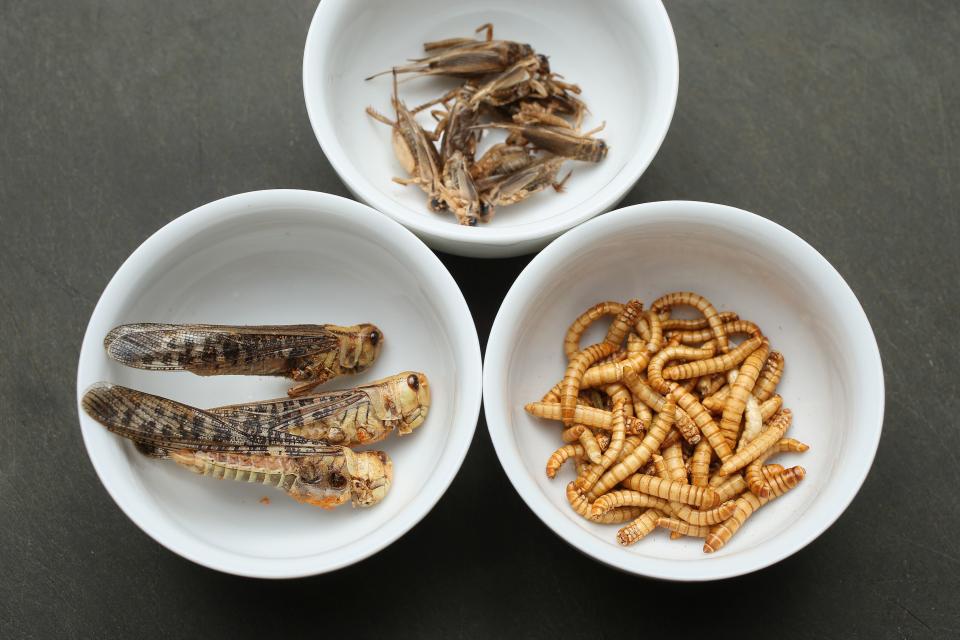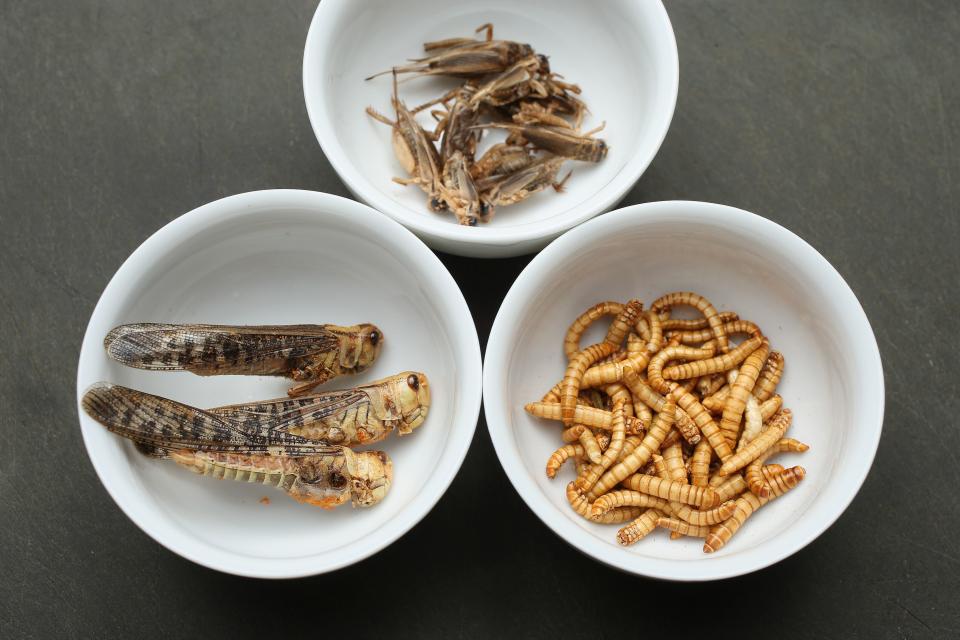Singapore Says Yes to Edible Insects in Boost to Food Security
(Bloomberg) -- Certain types of grasshoppers, moths and crickets could be appearing on Singapore’s supermarket shelves and restaurant tables after the government approved the import of insects and insect products for human consumption and animal feed.
Most Read from Bloomberg
Microsoft Orders China Staff to Use iPhones for Work and Drop Android
Biden’s Biggest Donors Left Powerless to Sway Him to End Bid
Zyn Imitators Rush In as Online Sales Halt Worsens US Shortage
Rich Chinese Return to Hong Kong as Singapore Steps Up Scrutiny
Asia’s Richest Banker Gets Caught in Adani-Hindenburg Crossfire
The Singapore Food Agency on Monday released an insect regulatory framework that establishes guidelines for the import of 16 types of insects that have been approved as food.
“These insects and insect products can be used for human consumption or as animal feed for food producing animals,” the circular states.
It also sets out the requirements that importers should adhere to and notes that insects and insect products imported for direct human consumption must be sufficiently treated to kill any pathogens.
The inclusion of insects as approved human and animal food is a further step in Singapore’s quest to reduce its reliance on food imports and boost its food security. The city-state’s 30 by 30 goal aims to have 30% of its nutritional needs locally met by 2030.
Currently, Singapore, which by virtue of its small size doesn’t have much of an agriculture sector, imports more than 90% of its food. The government’s food source diversification plans have been described as a “core strategy.”
Eating insects isn’t that uncommon in other parts of the world.
Insects have been approved for consumption in North America and the European Union while some neighboring countries like Thailand consume grasshoppers and other insects as snacks.
In Singapore, each of the 16 insects are only approved to be imported at specific stages of their life. Crickets and locusts, for example, are allowed to be imported at an adult stage only while mealworms and grubs must be imported as larva.
The Food and Agriculture Organization of the United Nations has appealed to the public to accept insects as food, stating that they’re nutritious, environmentally sustainable and an underutilized resource.
Listen to Zero: Perfume? Yes. Potatoes? No. Vertical Farming Tries to Grow Up
Most Read from Bloomberg Businessweek
At SpaceX, Elon Musk’s Own Brand of Cancel Culture Is Thriving
How Stocks Became the Game That Record Numbers of Americans Are Playing
©2024 Bloomberg L.P.

 Yahoo Finance
Yahoo Finance 

